
Probiotics for Dogs: Essential Benefits and Safe Usage Guide
Overview
Have you ever worried about your dog's health? Probiotics are essential for our furry friends, promoting digestive health and enhancing immune function. These beneficial microorganisms can even alleviate common issues such as allergies and diarrhoea. It's comforting to know that they help maintain a balanced gut microbiome, which is crucial for your dog's overall well-being.
Moreover, understanding the right dosage and safety considerations for probiotics can make a significant difference in your pet's health. By integrating these into your dog's routine, you're taking a proactive step towards ensuring their happiness and vitality. Remember, a healthy gut leads to a happy dog!
In addition, consider how these small changes can positively impact your pet's life. Probiotics not only support digestion but also contribute to a stronger immune system, allowing your dog to thrive. With the right guidance, you can make informed decisions that benefit your beloved companion.
So, why wait? Explore the world of probiotics and see how they can transform your dog's health for the better. Your furry friend deserves the best, and taking this step shows just how much you care.
Introduction
Have you ever worried about your dog's health? Probiotics are often hailed as the unsung heroes of canine health, playing a crucial role in maintaining a balanced gut microbiome. These beneficial bacteria not only enhance digestion and nutrient absorption but also bolster the immune system, making them essential for any dog’s diet.
However, with the myriad of probiotic options available, how can you ensure you are making the best choice for your furry companion? Understanding the benefits and safe usage of probiotics for dogs is key to unlocking their full potential in promoting overall health and wellness. Together, we can explore how to support your beloved pet with the right choices.
Define Probiotics and Their Role in Canine Health
Have you ever worried about your dog's health? Probiotics for dogs, often called 'good' or 'friendly' bacteria, can be a vital part of your pup's well-being. These live microorganisms offer significant benefits when consumed in appropriate amounts, especially for maintaining a balanced gut microbiome. This balance is crucial for digestion, nutrient absorption, and immune function.
Scooch's formula includes beneficial microorganisms that support healthy digestion and immune protection, ensuring your furry friend feels wonderful from the inside out. Research shows that around 70% of a dog's immune system is located in the gastrointestinal tract, highlighting the importance of a healthy gut microbiome. Probiotics work to combat harmful bacteria, reduce inflammation, and alleviate gastrointestinal issues such as diarrhoea and constipation.
By enhancing intestinal wellness, probiotics for dogs significantly contribute to your dog's overall health, making them an essential addition to their diet—especially for those facing specific medical challenges like allergies or digestive problems. Veterinary surgeons recommend a daily intake of 1-10 billion colony-forming units (CFUs) of beneficial bacteria to maximise these health benefits. However, it's crucial to consult with your veterinary surgeon before introducing any supplements, particularly for pets with severe immune deficiencies, as caution is necessary in such cases.
Additionally, some dogs may experience sensitivity to probiotics, leading to vomiting or diarrhoea. Proactively administering beneficial bacteria can help prepare your canine for stressful situations, like boarding or moving, by supporting their gastrointestinal system. With Scooch's Prebiotics and Postbiotics, you can enhance your dog's gut health for optimal digestion and immune support. Take the step today to nurture your beloved pet's well-being!

Explore the Health Benefits of Probiotics for Dogs
As a dog owner, have you ever worried about your furry friend's health? It's a common concern, and understanding the role of beneficial bacteria can provide peace of mind. These tiny allies offer numerous health advantages that are vital for your dog's overall wellness.
-
Improved Digestive Health: Probiotics are essential for restoring the natural balance of gut bacteria, which can be disrupted by stress, dietary changes, or antibiotic use. This restoration is crucial for maintaining optimal digestive function and preventing gastrointestinal issues, ensuring your dog feels their best.
-
Enhanced Immune Function: Did you know that about 70% of your dog's immune system resides in the gastrointestinal tract? A healthy gut microbiome strengthens immune responses, helping your dog fend off infections and diseases. Beneficial bacteria also assist in normalising digestive issues, promoting overall immune health.
-
Reduction of Allergies: Allergies can be distressing for both you and your dog. Probiotics for dogs can effectively manage allergic reactions by modulating the immune response and reducing inflammation. This is particularly beneficial for canines experiencing conditions like atopic dermatitis, as beneficial bacteria may ease symptoms and enhance their quality of life.
-
Support for Weight Management: If your dog is struggling with weight, certain probiotic strains can influence fat storage and energy metabolism. This assistance is key to weight control for overweight canines, leading to significant improvements in their well-being and a reduction in obesity-related conditions.
-
Prevention of Diarrhoea: Diarrhoea can be a distressing issue, especially in puppies or dogs undergoing antibiotic treatment. Probiotics are effective in preventing and addressing this concern by restoring gut flora balance, which is essential for maintaining regular bowel movements and overall digestive health.
These advantages highlight the essential role of beneficial bacteria in fostering a healthy and balanced lifestyle for your canine companion. By incorporating these into your pet care routine, you can enhance their health and happiness, ensuring they thrive.

Implement Probiotics: Dosage, Selection, and Administration
As a dog owner, have you ever worried about your furry friend’s health? Implementing probiotics for dogs can be a wonderful way to support their well-being. Here are some key aspects to consider:
-
Dosage: The right dosage of probiotics varies depending on the specific product and your dog's weight. For Scooch's supplements, the daily feeding guide suggests:
- 1 chew for small canines (less than 9kgs)
- 2 chews for medium canines (10-18kgs)
- 3 chews for large canines (18-36kgs)
- 4 chews for giant canines (over 36kgs)
Always adhere to the manufacturer's guidelines or consult with a veterinary for personalised recommendations. Regular use of probiotics for dogs is crucial for maximising their advantages, and prolonged usage is recommended to observe the full effects.
It’s important to choose probiotics for dogs that are specifically designed for their needs. These products are types of probiotics for dogs that include strains particularly beneficial for canine health. Ensure that the products have been tested for safety and efficacy. Scooch's vet-formulated supplements contain beneficial ingredients like Bacillus Coagulans and Zinc, which enhance digestive health and support tissue repair.
-
Administration: You can provide beneficial bacteria in various forms, such as powders, capsules, or treats. For Scooch's chews, simply offer them as treats to ensure your dog consumes the full dosage. Daily administration can provide continuous support, especially for dogs with ongoing digestive issues. After starting probiotics, keep an eye on your dog for any changes in behaviour or digestion, and consult your veterinary if you have any concerns. As experts observe, probiotics for dogs are beneficial microbes that help restore this balance by promoting efficient digestion, enhancing nutrient absorption, and boosting the immune system, making them an important part of your dog’s health care. Additionally, mixing Scooch supplements is generally acceptable, except for the All-In-One and Joints & Mobility supplements, allowing for tailored support based on your dog's unique needs.
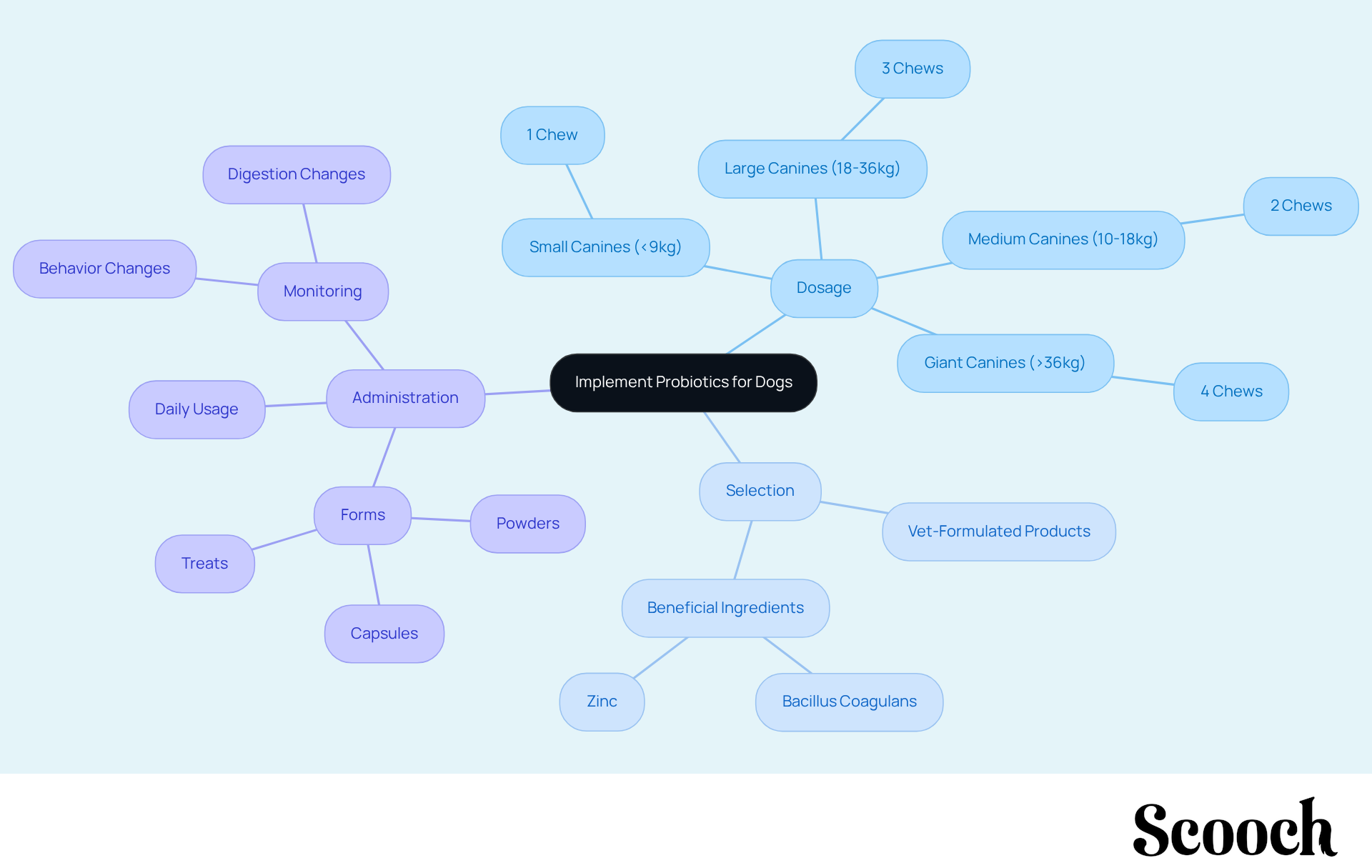
Assess Safety and Side Effects of Probiotics for Dogs
As a dog owner, have you ever worried about your furry friend's health? Probiotics for dogs are generally considered safe, but it's important to be aware of potential side effects. Here are some common issues you might encounter:
- Digestive Upset: Many dogs may experience mild gastrointestinal symptoms like gas, bloating, or diarrhoea when first introduced to probiotics. It's worth noting that about 30% of dog owners report digestive issues as a common concern when starting these supplements. Observing your dog's reaction is essential.
- Allergic Reactions: Although rare, some dogs may show allergic responses to specific beneficial bacteria. Be on the lookout for signs such as itching, hives, or swelling, and consult your veterinary surgeon immediately if you notice any of these symptoms. Dr. Teresa Manucy, DVM, reminds us, "While allergic reactions are uncommon, it's essential to monitor your dog closely for any signs of discomfort." Fortunately, Scooch's supplements are hypoallergenic, making them suitable for sensitive puppies, and they can be introduced to dogs as young as 12 weeks old.
- Immunocompromised Dogs: If your dog has a weakened immune system, it's crucial to provide beneficial bacteria only under veterinary supervision, as they may face a higher risk of infections. Certain strains, like Lactobacillus and Bifidobacterium, can be beneficial, but caution is advised for immunocompromised pets due to their increased sensitivity.
Veterinary insights highlight that while probiotics for dogs can enhance digestive function, consistent monitoring is vital, especially for dogs with previous medical issues or those undergoing treatment. Maintaining open communication with your veterinary surgeon can help ensure the safe and effective incorporation of probiotics into your dog's health regimen. For those picky eaters, Scooch's itching and allergy supplements come in a delicious natural chicken flavour, making it easier to administer these beneficial products.

Conclusion
Have you ever worried about your dog's health? Probiotics can be a vital component for enhancing canine well-being, offering a range of benefits that contribute to your furry friend's overall health. By incorporating these beneficial bacteria into your dog's diet, you can help maintain a balanced gut microbiome, which is essential for optimal digestion, immune function, and overall vitality. Understanding the significance of probiotics empowers you to make informed choices that support your pet's health journey.
Moreover, the article highlights several key benefits of probiotics for dogs. These include:
- Improved digestive health
- Enhanced immune function
- Allergy reduction
- Weight management support
- Prevention of diarrhoea
Each of these points underscores the importance of selecting the right probiotic strains and administering them in appropriate dosages to maximise their effectiveness. Additionally, safety considerations, including potential side effects and the need for veterinary consultation, are crucial for ensuring that your dog receives the best care possible.
Ultimately, integrating probiotics into your dog's health regimen is not just a trend but a meaningful step towards fostering a longer, healthier life for your beloved companion. By prioritising gut health, you can enhance your pet's quality of life and address specific health challenges. Taking action today to include probiotics can lead to significant improvements in your dog's happiness and vitality, making it a wise investment in their health journey.
Frequently Asked Questions
What are probiotics for dogs?
Probiotics for dogs are live microorganisms, often referred to as 'good' or 'friendly' bacteria, that provide significant health benefits when consumed in appropriate amounts, particularly for maintaining a balanced gut microbiome.
Why are probiotics important for canine health?
Probiotics are important for canine health as they help maintain a balanced gut microbiome, which is crucial for digestion, nutrient absorption, and immune function. They combat harmful bacteria, reduce inflammation, and alleviate gastrointestinal issues such as diarrhoea and constipation.
How does a healthy gut microbiome affect a dog's immune system?
Approximately 70% of a dog's immune system is located in the gastrointestinal tract, making a healthy gut microbiome essential for overall immune function and health.
What benefits do probiotics provide for dogs with specific medical challenges?
Probiotics significantly contribute to the overall health of dogs facing specific medical challenges, such as allergies or digestive problems, by enhancing intestinal wellness.
What is the recommended daily intake of probiotics for dogs?
Veterinary surgeons recommend a daily intake of 1-10 billion colony-forming units (CFUs) of beneficial bacteria to maximise health benefits.
Should I consult a veterinarian before giving my dog probiotics?
Yes, it is crucial to consult with your veterinary surgeon before introducing any supplements, especially for pets with severe immune deficiencies, as caution is necessary in such cases.
Can some dogs have adverse reactions to probiotics?
Yes, some dogs may experience sensitivity to probiotics, which can lead to vomiting or diarrhoea.
How can probiotics help dogs in stressful situations?
Proactively administering beneficial bacteria can help prepare dogs for stressful situations, such as boarding or moving, by supporting their gastrointestinal system.
What additional products can enhance a dog's gut health?
Scooch's Prebiotics and Postbiotics can be used alongside probiotics to further enhance a dog's gut health for optimal digestion and immune support.
List of Sources
- Define Probiotics and Their Role in Canine Health
- Probiotics for your Pets (https://vetmed.tamu.edu/news/pet-talk/probiotics-for-your-pets)
- Using probiotics to support digestive health for dogs - International Scientific Association for Probiotics and Prebiotics (ISAPP) (https://isappscience.org/using-probiotics-to-support-digestive-health-for-dogs)
- The power of probiotics (https://vet.cornell.edu/departments-centers-and-institutes/riney-canine-health-center/canine-health-information/power-probiotics)
- Can Probiotics Help Your Dog? (https://dailypaws.com/dogs-puppies/health-care/dog-medications/probiotics-for-dogs)
- Gut bacteria found in wild wolves may be key to improving domestic dogs’ health | Newsroom (https://news.oregonstate.edu/news/gut-bacteria-found-wild-wolves-may-be-key-improving-domestic-dogs’-health)
- Explore the Health Benefits of Probiotics for Dogs
- Do probiotics for dogs work? Owners follow gut instinct (https://thetimes.com/uk/science/article/probiotic-supplements-dogs-pets-bpr7fkmh3)
- The Health Benefits of Probiotics for Dogs - Guides | Big Dog Pet Foods (https://bigdogpetfoods.com/guides/the-health-benefits-of-probiotics-for-dogs)
- The power of probiotics (https://vet.cornell.edu/departments-centers-and-institutes/riney-canine-health-center/canine-health-information/power-probiotics)
- Probiotics for Dogs: Does Your Dog Need Them? (https://petmd.com/dog/general-health/probiotics-dogs-what-you-need-know)
- Probiotics for your Pets (https://vetmed.tamu.edu/news/pet-talk/probiotics-for-your-pets)
- Implement Probiotics: Dosage, Selection, and Administration
- Probiotics for your Pets (https://vetmed.tamu.edu/news/pet-talk/probiotics-for-your-pets)
- New RVC research reveals antibiotics offer no benefit in treating dogs with diarrhoea - News - VetCompass - Royal Veterinary College, RVC (https://rvc.ac.uk/vetcompass/news/new-rvc-research-reveals-antibiotics-offer-no-benefit-in-treating-dogs-with-diarrhoea)
- Doubts arise over treating dog diarrhea with antibiotics (https://news.vin.com/default.aspx?pid=210&catId=613&Id=11787352)
- Probiotics for Dogs: Why You Should Consider Them (https://thedogdoctors.co.uk/blogs/news/probiotics-for-dogs-why-you-should-consider-them)
- Assess Safety and Side Effects of Probiotics for Dogs
- 7 Probiotics Side Effects in Dogs (https://honestpaws.com/blogs/probiotics/dog-probiotic-side-effects)
- Probiotics for Dogs: Does Your Dog Need Them? (https://petmd.com/dog/general-health/probiotics-dogs-what-you-need-know)
- Can dog probiotics cause side-effects? (https://protexin.com/gut-club/can-dog-probiotics-cause-side-effects-2)
- Probiotics in dogs and cats (https://vettimes.com/news/vets/small-animal-vets/probiotics-in-dogs-and-cats)
- Dog Probiotics Side Effects: What Should Pet Parents Watch Out For? (https://au.mightymunch.com/blogs/news/dog-probiotics-side-effects?srsltid=AfmBOor1KISE4OeGPAwmMChbhtAqcP83VyjuSVWAQr-1X4Kv43dQeRyT)
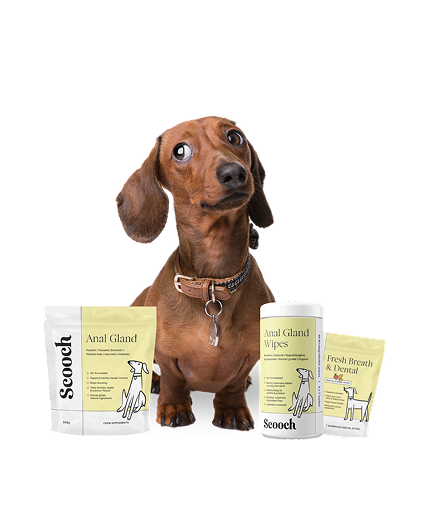
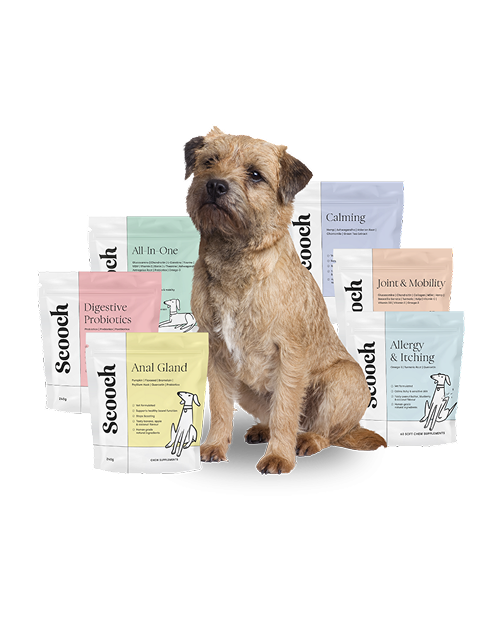
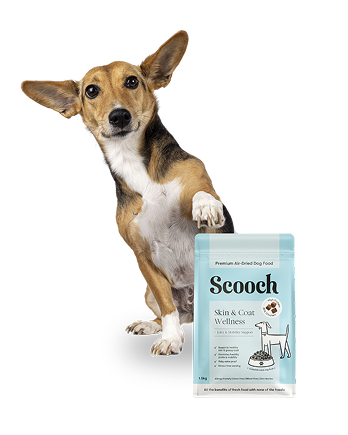
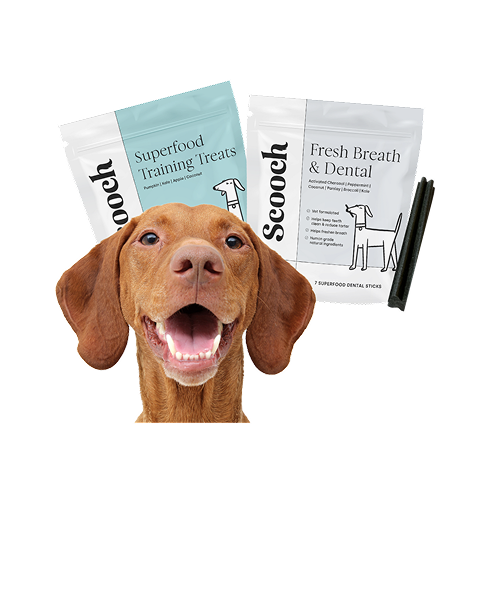
 Scooch health
Scooch health